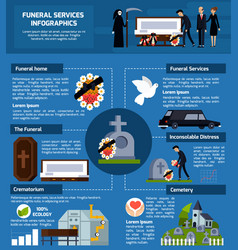Checking Out The Rich Background And Long-Lasting Impact Of Catholic Schools Worldwide
Checking Out The Rich Background And Long-Lasting Impact Of Catholic Schools Worldwide
Blog Article
Content Develop By-McPherson Lanier
When you take into consideration the background of education and learning, Catholic colleges stand apart for their deep-rooted practices and lasting influence. These establishments began as a means to infuse faith and values, however they have actually adjusted extremely over centuries. Today, they play an essential duty fit not just academic success but also moral integrity. What's fascinating is just how they've handled to prosper among changing social landscapes, raising questions about their future significance and impact.
The Beginnings of Catholic Education: A Historical Viewpoint
Catholic education traces its roots back over 1,500 years, when very early Christian areas recognized the need for structured discovering. You'll locate that these areas aimed to hand down their belief and values via education.
Monasteries and sanctuary colleges became centers of knowing, supporting both spiritual and intellectual development. As you dig much deeper, you'll see that the educational program often consisted of ideology, theology, and the liberal arts, designed to form well-rounded individuals.
With time, the Church established extra official establishments, ensuring that education remained accessible to all. The commitment to teaching ethical worths and fostering a feeling of community has actually persisted with the centuries, shaping the educational landscape and affecting many lives worldwide.
This enduring tradition remains to motivate Catholic education today.
The Development of Catholic Colleges With Cultural Contexts
As cultures developed, so did the duty of Catholic institutions, adjusting to the cultural contexts in which they existed. In the early years, these establishments concentrated largely on religious direction, but as communities branched out, they started to incorporate neighborhood languages, customs, and academic requirements.
https://anotepad.com/notes/4pnmxtn9 'd observe that Catholic institutions commonly became facilities for social communication, promoting a feeling of belonging among pupils from different backgrounds. In lots of areas, they resolved social problems, such as destitution and discrimination, by giving accessible education for all.
As you check out different cultures, you'll see exactly how Catholic schools have actually moved their curricula and mentor methods, reflecting the worths and difficulties of their atmospheres while holding to their foundational objective of belief and scholastic excellence.
The Modern Role and Influence of Catholic Schools in Culture
In today's globe, Catholic colleges play a vital duty fit not just the instructional landscape, but also the broader neighborhood.
You'll locate that these organizations highlight worths like regard, concern, and social justice, promoting all-around individuals who add positively to society. By focusing on scholastic excellence and ethical advancement, Catholic institutions prepare students for future challenges, nurturing important thinking and leadership skills.
They typically serve varied populations, bridging voids in access to high quality education. In addition, you may discover their commitment to service, motivating pupils to engage in neighborhood outreach and volunteer job.
This mix of education and moral support makes Catholic schools a significant pressure, growing responsible residents that can impact their communities for the better.
Conclusion
To conclude, Catholic schools have a rich background that's shaped their long-lasting effect on society. Elementary Catholic elementary schools Near Me Glen Lake have actually seen just how they've adjusted to numerous cultural contexts while keeping a commitment to belief, worths, and scholastic quality. Today, they remain to play a crucial function in promoting community, advertising social justice, and nurturing responsible citizens. As you assess their legacy, it's clear that Catholic institutions remain an effective pressure for favorable adjustment worldwide.
